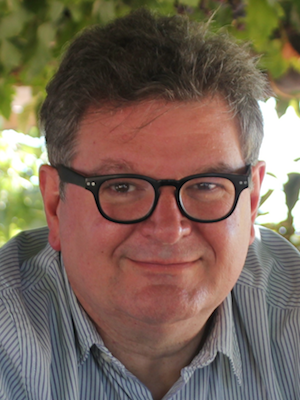Go to
Ricardo Reis
Optimization is a Keyword in CPS Design
Cyber-physical Systems and IoT have an important overlap. In this case, the keyword is optimization and the main goal of optimization is power reduction. Many electronic systems nowadays use much more components than is needed. As leakage power is an important issue, an optimization of power consumption means an optimization of the amount of components. For example, using the traditional standard cell approach there is a lack of options of functions and sizing. Physical design using any optimized network of transistors with any transistor sizing can provide an important reduction on power consumption as well a reduction on routing congestion.
Also, many CPS are critical systems that also demands an important observation of reliability issues. CPS related to IoT can also demand the use of heterogeneous chips including electronic, physical, chemical sensors and other components.
All these issues demand an effort to develop CPS DA tools. These CPS DA tools should be considered as not only the electronic components but also any other type of component such as mechanical, organic and chemical ones. One way is to use an CPC (Cyber Physical Cells) approach based on a library of electronic cells (using optimized transistor networks), mechanical cells, chemical cells, organic cells and interface cells. The design of CPS demands also changes on education increasing interdisciplinarity.
About the panel speaker:
 Ricardo Reis is a full professor of the Federal University of Rio Grande do Sul, at Porto Alegre, Brazil. He studied Electrical Engineering at UFRGS- Federal University of Rio Grande do Sul at Porto Alegre, Brazil (1978). He got his Ph.D. degree from the Institut National Polytechnique de Grenoble, France (1983). Ricardo Reis is research level 1A of the CNPq (Brazilian National Science Foundation) and head of several research projects supported by Government Agencies and Industry. Past head of the Graduate Program in Computer Science and of the Microelectronics Graduate Program, both at UFRGS.
Ricardo Reis is a full professor of the Federal University of Rio Grande do Sul, at Porto Alegre, Brazil. He studied Electrical Engineering at UFRGS- Federal University of Rio Grande do Sul at Porto Alegre, Brazil (1978). He got his Ph.D. degree from the Institut National Polytechnique de Grenoble, France (1983). Ricardo Reis is research level 1A of the CNPq (Brazilian National Science Foundation) and head of several research projects supported by Government Agencies and Industry. Past head of the Graduate Program in Computer Science and of the Microelectronics Graduate Program, both at UFRGS.
From 2008 to 2011 Ricardo was the vice-president of IEEE Circuits and Systems representing Region 9 (Latin America). He has published more than five hundred papers in journals and conferences proceedings. He is also author and co-author of several books. Ricardo Reis is a senior member of IEEE. He served as a General Chair or Program Chair of several international conferences. In 2015 he received the Meritorious Service Award from IEEE CASS.
His research interests are Physical Design, Physical Design Automation, Design Methodologies, Digital Design, CAD, Circuits Tolerant to Radiation and Microelectronics Education.
Secondary navigation
- EPFL Workshop on Logic Synthesis and Emerging Technologies
- Luca Amaru
- Luca Benini
- Giovanni De Micheli
- Srini Devadas
- Antun Domic
- Rolf Drechsler
- Pierre-Emmanuel Gaillardon
- Jie-Hong Roland Jiang
- Akash Kumar
- Shahar Kvatinsky
- Yusuf Leblebici
- Shin-ichi Minato
- Alan Mishchenko
- Vijaykrishnan Narayanan
- Ian O'Connor
- Andre Inacio Reis
- Martin Roetteler
- Julien Ryckaert
- Mathias Soeken
- Christof Teuscher
- Zhiru Zhang
- Symposium on Emerging Trends in Computing
- Layout synthesis: A golden DA topic
- EPFL Workshop on Logic Synthesis & Verification
- Luca Amaru
- Luca Benini
- Robert Brayton
- Maciej Ciesielski
- Valentina Ciriani
- Jovanka Ciric-Vujkovic
- Jason Cong
- Jordi Cortadella
- Giovanni De Micheli
- Antun Domic
- Rolf Drechsler
- Henri Fraisse
- Paolo Ienne
- Viktor Kuncak
- Enrico Macii
- Igor Markov
- Steven M. Nowick
- Tsutomu Sasao
- Alena Simalatsar
- Leon Stok
- Dirk Stroobandt
- Tiziano Villa
- Symposium on Emerging Trends in Electronics
- Raul Camposano
- Anantha Chandrakasan
- Jo De Boeck
- Gerhard Fettweis
- Steve Furber
- Philippe Magarshack
- Takayasu Sakurai
- Alberto Sangiovanni-Vincentelli
- Ken Shepard
- VENUE
- Panel on Circuits in Emerging Nanotechnologies
- Panel on Emerging Methods of Computing
- Panel on The Role of Universities in the Emerging ICT World
- Panel on Design Challenges Ahead
- Panel on Alternative Use of Silicon
- Nano-Bio Technologies for Lab-on-Chip
- Functionality-Enhanced Devices Workshop
- More Moore: Designing Ultra-Complex System-on-Chips
- Design Technologies for a New Era
- Nanotechnology for Health
- Secure Systems Design
- Surface Treatments and Biochip Sensors
- Security/Privacy of IMDs
- Nanosystem Design and Variability
- Past Events Archive

